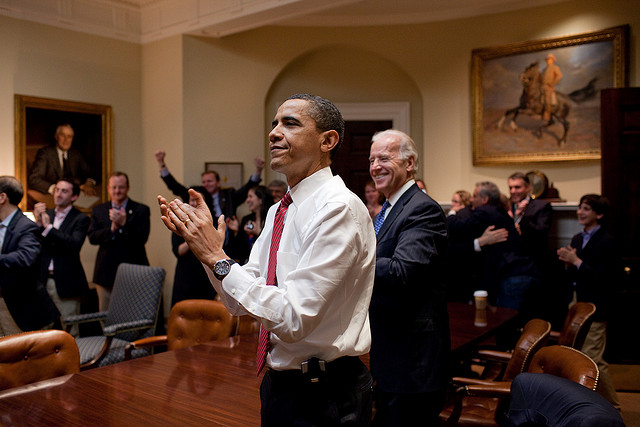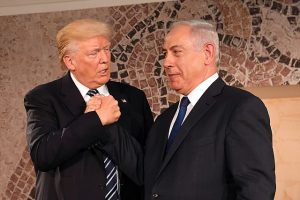by Peter Jenkins
As I mentioned in a previous piece, I have been dipping into The Arrogance of Power, written by Senator William Fulbright in 1966. It has been a comforting experience in one respect. The divisions within the US foreign policy community that have been so apparent to European observers since 2001 have clearly been a characteristic of the world’s only Great Power since the senator offered his diagnosis 47 years ago. Yet the world has survived.
In another respect it has been troubling. The senator saw two tendencies that were evenly matched, and believed that the tendency he characterised as “moderate” could prevail. Yet over the last 12 years, the tendency he characterised as “full of a passionate intensity” (cf. “The Second Coming”, W.B. Yeats) has shown itself to be in rude health, whereas the moderate tendency seems to have suffered a loss of form.
Let me start to clarify what I am trying to say by a lengthy quote from the final chapter of The Arrogance or Power:
There are two Americas. One is the America of Lincoln and Adlai Stevenson; the other the America of Teddy Roosevelt and the modern superpatriots. One is generous and humane, the other narrowly egotistical; one is self-critical, the other self-righteous;…one is moderate, the other filled with passionate intensity; one is judicious and the other arrogant in the use of great power.
We have tended in the years of our great power to puzzle the world by presenting to it now the one face and now the other; and sometimes both at once. Many people all over the world have come to regard America as being capable of magnanimity and farsightedness but no less capable of pettiness and spite…
After twenty five years of world power the United States must decide which of the two sides of its national character is to predominate – the humanism of Lincoln or the arrogance of those who would make America the world’s policeman…
What seems to be happening…is that the feel of America in the world’s mind has begun to change and faith in “the idea of America” has been shaken for the world…much of the idealism and inspiration is disappearing from American policy but they are not yet gone and by no means are they irretrievable.
The foremost need of American foreign policy is a renewal of dedication to an “idea that mankind can hold to” – not a missionary idea full of pretensions about being the world’s policemen but a Lincolnian idea expressing that powerful strand of decency and humanity which is the true source of America’s greatness.
I imagine that I don’t need to defend the assertion that the Teddy Roosevelt tradition has been in rude health since 2001. What grounds have I for claiming that the “humane, “generous”, “moderate” and “judicious” tendency is going through a bad patch?
In November’s US Presidential election one candidate manifestly represented the “superpatriot” tendency, the other stood for moderation and the judicious use of power. The moderate candidate won. This should be reason for hope and rejoicing for all those outside the US who prefer the country’s moderate face and who fear the possibility of a third war in the Persian Gulf. It is not, though.
President Obama let his first term pass without striving to resolve the greatest current threat to world peace, the Iranian nuclear dispute. He allowed himself to be deterred by advisers who were more concerned with conciliating Israel and Congress, and keeping in tune with (an ill-informed) public opinion, than with showing the statecraft that would be needed to crack such a tough nut. All of this emerges clearly from the writings of Trita Parsi and lately, it seems, Roger Cohen, who recently penned a scathing piece based on a book by Vali Nasr – all of which is hardly surprising if, as some of my US friends allege, the President has no real interest in foreign policy.
And now the second term is getting off to no better a start. The 6-world power P5+1 are travelling to Kazakhstan with the same stale proposals in their briefcases. Washington appears reluctant to follow-up an offer of bilateral talks by making the demonstration of good faith for which Tehran has asked, preferring to imagine, perhaps, that Ayatollah Khamenei has ruled out any bilateral process. Senior members of the administration continue to trot out the same old rhetoric of penal pressure.
There’s still time for the moderate tendency to up its game, I suppose. But will it? Can the men and women who lead it recognise two of the unspoken assumptions of Senator Fulbright and others of his generation?
– it is the responsibility of statesmen to form and lead opinion;
– statesmen take short-term political risks to avert the long-term national risks of inaction.
Pity the rest of the world if they can’t.
Photo: President Barack Obama, Vice President Joe Biden, and senior staff, in the Roosevelt Room of the White House. (Official White House Photo by Pete Souza)





